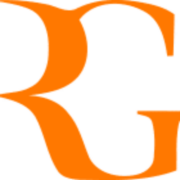Food Inflation Drives Highest Rate in a Year, Retailers Anticipate More Pressure
- Inflation hits highest point in a year due to rising food prices
- Headline inflation rises to 3% from 2.5% in December
- Food inflation increases significantly
- Clothing and footwear inflation up 0.7 percentage points to 1.8%
- Furniture and household equipment prices rise from -0.3% to 0.5%
- Inflation expected to continue rising in 2025 due to additional costs for retailers
Inflation has reached its highest point in nearly a year, driven by food inflation and air fares, according to the British Retail Consortium (BRC). Headline inflation rose to 3% in January from 2.5% in December, while inflation for alcohol and tobacco increased to 4.9%. Inflation for clothing and footwear nudged up 0.7 percentage points to 1.8%, and furniture and household equipment prices went from -0.3% to 0.5%. BRC director of insight Kris Hamer stated, ‘Headline inflation rose to its highest point in almost a year, driven by rising food inflation and air fares.’ He added that extensive discounting by retailers led to significant price drops on the month for clothing and footwear but furniture and household equipment returned to inflation for the first time in ten months. Food inflation increased due to anticipated additional costs such as changes to Employers’ National Insurance and increases to the National Living Wage, coming into force in April. Hamer predicted a rise in headline rate of inflation would continue throughout 2025. He suggested that if the government wants to control inflation and ease consumer burden, they should address retail industry costs by speeding up business rates reform or delaying new packaging taxes. In November, Consumer Prices Index (CPI) inflation increased to 2.6% from 2.3% the previous month, as per the Office for National Statistics (ONS).
Factuality Level: 8
Factuality Justification: The article provides accurate and objective information about inflation rates and their causes, with quotes from a relevant source and references to official statistics. It also includes some predictions for the future based on current trends, but does not contain any irrelevant or misleading information, sensationalism, redundancy, opinion masquerading as fact, bias, invalid arguments, logical errors, inconsistencies, or fallacies.
Noise Level: 3
Noise Justification: The article provides relevant information about inflation rates and their causes, as well as potential solutions to mitigate the issue. However, it contains some irrelevant information at the end about Haribo opening a store in Kent’s Bluewater shopping centre which does not add value to the overall topic.
Financial Relevance: Yes
Financial Markets Impacted: No
Financial Rating Justification: The article discusses inflation rates and their impact on retailers and consumers, which are financial topics. However, it does not mention any specific financial markets or companies being directly impacted.
Presence Of Extreme Event: No
Nature Of Extreme Event: No
Impact Rating Of The Extreme Event: No
Extreme Rating Justification: No extreme event is mentioned in the text and it’s not the main topic.
 www.retailgazette.co.uk
www.retailgazette.co.uk 